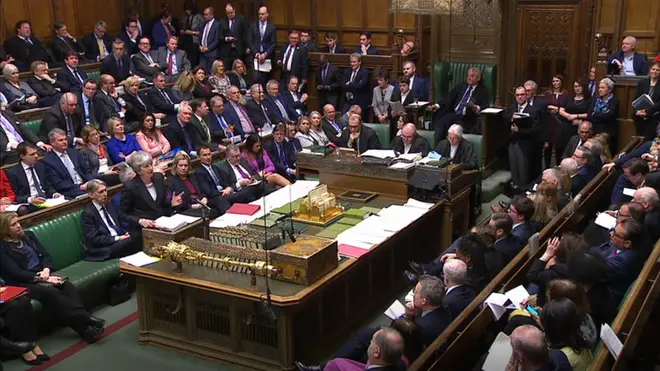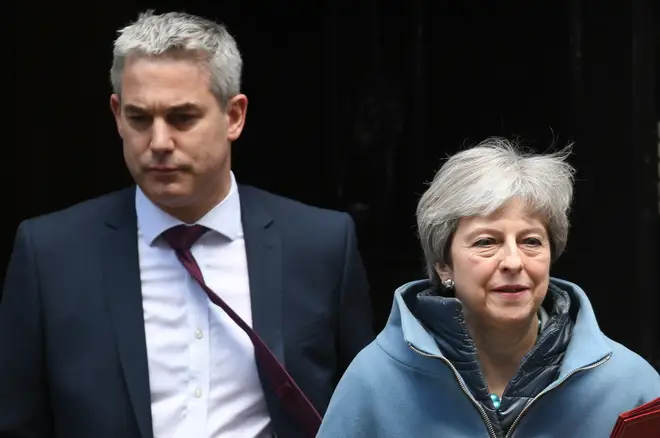
Simon Marks 3pm - 7pm
25 March 2019, 15:56 | Updated: 25 March 2019, 22:17
“Indicative votes” has become the latest term to be bounded around the Brexit chaos - but what are they and what would it mean for Britain’s EU exit?
Indicative votes are a way of testing whether there is a majority in the House of Commons for different options relating to one issue.
MPs approved the idea by 329 to 302 votes on Monday night after it was put forward Conservative MP Sir Oliver Letwin.
Before any indicative votes can be held, MPs must secure parliamentary time for debate - which is usually controlled by the government.
Previous attempts for backbenchers to seize control of the timetable have been narrowly rejected.
However, tonight, a new attempt won a majority in the Commons.

There are seven options the Commons could be asked to vote on.
These include:
- Revoking Article 50
- A second referendum
- Theresa May’s deal
- No-deal Brexit
- A “Canada-style” free trade agreement
- Customs Union
- Customs Union and Single Market access
It’s not clear whether there is a majority in Parliament for any of the above options.
No, indicative votes aren’t legally binding on the government’s position.
Mrs May said she is "sceptical" about the plan and cannot agree to guaranteeing implement the result.
But, as one former House of Commons clerk told LBC, it would be difficult for the Prime Minister to ignore.
“If an indicative vote does bring an alternative option for Brexit, the government does have a very stark political choice to make as to whether they can continue in office having been frustrated by the legislator,” Eliot Wilson said.

Yes, the last time indicative votes were held was in 2003, when MPs voted on a number of different options on a reformed House of Lords.
However, the Commons ended up voting for two different options which were mutually exclusive but each claimed to be the way forward.
It meant the status quo prevailed as the reforms were not passed.
“I don’t think it’s the silver bullet some people think it is,” Mr Wilson said of indicative votes.